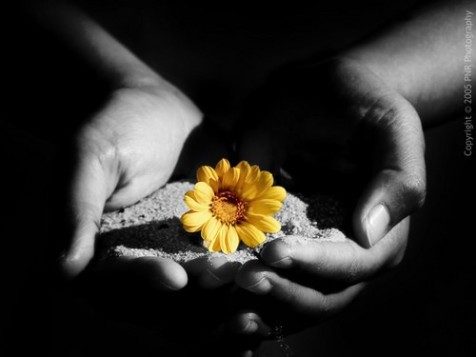 Although this may sound like a simple argument to set forth, life really is about choices. Almost everything you do each day is a choice— even those things that you think you must do or that someone else is expecting you to do. Sometimes I think that our society conditions us to believe that we have to live a certain way and make certain decisions because the world, at large, thrives upon control. To hold on to individuality in a universe of conformists requires strength and courage. Even those who seem to rebel against the confines of society are often in prison cells of their own making. They do not realize that they aren’t free because the bars of their prison obscure their view, thereby preventing them from seeing their lives and the circumstances of their lives clearly.
Although this may sound like a simple argument to set forth, life really is about choices. Almost everything you do each day is a choice— even those things that you think you must do or that someone else is expecting you to do. Sometimes I think that our society conditions us to believe that we have to live a certain way and make certain decisions because the world, at large, thrives upon control. To hold on to individuality in a universe of conformists requires strength and courage. Even those who seem to rebel against the confines of society are often in prison cells of their own making. They do not realize that they aren’t free because the bars of their prison obscure their view, thereby preventing them from seeing their lives and the circumstances of their lives clearly.
For a long time, my favorite quotation has been one that the poet E. E. Cummings once said: “To be nobody but yourself in a world which is doing its best, night and day, to make you everybody else means to fight the hardest battle which any human being can fight; and never stop fighting.” When I first read this quotation, I found myself asking, why should being ourselves be our hardest battle? Why is it so important to everyone that we all conform to the preconceived image of what they think we ought to be?
It’s ironic, really, that rebels and those who step away from the crowd are ever admired or held up as role models, considering how strongly we are all urged to be like everyone else. Of course, many who have been courageous enough to embrace their individuality and live authentically have been vilified and maligned by the world, at large. Throughout history, this has been the case, and from Jesus to Martin Luther, King, Jr., we have seen the revolutionary leaders cut down, oftentimes in their prime. It is easy for people to criticize, mock, and demean that which they do not understand. And we can all point fingers at those who choose to forge a new and unchartered path for themselves, particularly if we are one of those unfortunate souls who remains entrenched in a life of mediocrity.
Oddly enough, I have encountered so much criticism and mockery at this point, that none of it touches me anymore. I am like the bird who will not be deterred in its migratory flight. But a friend of mine has recently been attacked for some of the choices she has made. When I read the negative comments others made about her, I realized how true it is that those who try to tear others down only end up tearing down themselves. Those who create beautiful castles do not build their masterpieces by destroying the castles that other people have built.
When we were children, sometimes we may have done things that hurt others without meaning to. Perhaps, we wanted to be liked by our peers. Or maybe we just had not yet learned that there can be lasting consequences to our actions. However, when we grew up, we learned that even those things that are seemingly insignificant can have lasting affects on not only our lives but also the lives of others. And unless we derive satisfaction from cruelty, most of us do our best not to injure other people. At the same time, there are exceptions. If we knew why this was the case, we would be able to solve a question that has been puzzling cognitive scientists, psychiatrists, and philosophers for centuries. As it is, we can only speculate and try to content ourselves with the very plain yet frustrating truth that there are many mysteries in life that will never be understood.
From now on, I am making no more efforts to turn enemies into friends or detractors into fans and admirers of my work. If someone doesn’t like the articles I write, I would suggest that he/she stop reading them. A person’s life is too short to spend time on things that he/she will never make a choice to appreciate or understand. We each have our own journey to take. Therefore, I encourage everyone to go his/her own way, with both my blessing and my request that he/she gives me the freedom they are giving themselves. When we let others walk their own path, we should be secure enough in our own choices that we feel no need to criticize them.
I tend to think that those who feel the need to tear down others do so because they have so little power in their own lives that they feel they must try to take the power away from others. This is why you will oftentimes notice that those who are at the top of their chosen professions are more caring, generous, and gracious than those who are living what Henry David Thoreau would call “quiet lives of desperation”. When we feel content in our lives and we are truly aligned with our own purpose, we want those around us to be engaged with life the same way that we are.
But when we are not happy or fulfilled and we see others who seem to be leading lives that are successful and joyful, some of us start subscribing to the idea that we have been shortchanged in some way. Why? Because it’s easier to turn ourselves into victims than to take responsibility for our lives and the choices we have made. If we can blame someone else for our mistakes and our missed opportunities, even if it doesn’t do any good, it can leave us with a temporary feeling of satisfaction. But can it satisfy us on a long-term basis?
Some people speculate about what the driving force throughout the world is. They debate whether it’s love or money or both. Well, although I am still examining this issue, I am relatively certain that it’s neither love nor money. Rather, I believe that it’s desire. If you will look around, you will notice that most of the choices we make have begun with a desire. The problem with this, of course, is that in allowing desire to control our choices we are being moved by passion rather than by critical thinking. Yes, there is something to be said for intuition and “gut feelings”. But by its very nature, desire is a force that should be used with care and caution.
Yet, since desire is what I believe rules this world we live in, it is being misused and abused in ways that most of us would never even be able to imagine. And, it is what brings about most of the pain in the world, too. For it is a desire for power and control that prevents people from giving other people the freedom to lead their own lives and make their own choices. Even crimes like murder and rape are rooted in desire . . . the desire to take the life of another person or the desire to have sexual and physical power over another person. Neither love nor money is involved in either rape or murder, but both of these vile acts are more prevalent in the world we now live in than ever before.
Do not misunderstand what I’m saying and subscribe to the erroneous idea that I’m saying desire is a completely negative force. Desire can be very positive as well. I think the question we all need to examine is this: are we controlling our desires or are our desires controlling us? When we tear down other people, it isn’t because we are powerful but because we are weak. When we criticize, complain, and demean, we are relegating ourselves to the role of victims, rather than victors. We are saying, “My sense of self-worth is so low that I have to try to make others feel less valuable in order to feel good enough about myself.” Once we realize that this is the message we are sending out, it forces us to rethink our behavior—or, at least, it should.
Like everyone else, I have had moments in which I have offered criticism when support and encouragement was what was called for. But this is because I am human as opposed to being a divine being. Thankfully, I’ve learned that I will never have freedom in my own life if I do not let others have their freedom, too. We cannot expect to have something that we try to take away from other people. And we can expect that we will be criticized if all that we offer others is criticism, just as a spirit of hate provokes strife and malevolence breeds disdain. Life seems to have a way of giving us back what we have given to others, which brings us once again back to the issue of choice.
In the past, I have shared certain aspects of my personal story in my SuccessDiva articles. But since everybody has a story, I feel that more can be accomplished if I do not share all of mine. I would rather focus on you and the changes I can inspire you to make if you choose to let my words enter into your soul and bring your deepest and most exquisite dreams to the surface of your consciousness.
What do you want to accomplish in your life? If you must end your life with regrets, which regrets do you want them to be? Would you rather regret not reaching a goal in spite of all your efforts or would you prefer to regret not ever having tried to reach the goal in the first place? Do you want to regret having stayed in a relationship that never made you happy because you were unwilling to give up your security? Or would you rather take a chance at finding the man or woman of your dreams, even if you never find him or her?
Yes, life really is about choices. And the choices you make today truly will influence not just tomorrow but also the rest of your life. Choosing wisely isn’t enough—you also have to choose courageously. Taking risks is part of what will bring you the life you want to live. None of us have a user’s manual to help guide us through our lives. To imagine that we will never have self-doubt or fear or moments of panic and anxiety isn’t realistic. What the determining factor in each of our lives is is whether we overcome all of these things. Do we let society dictate our needs and desires? Do we let other people make our decisions for us? Do we waver in our choices, even when we know we are making the choices that are right for us?
A life of purpose is a life that is lived with a sense of conviction. A person who wants to live freely and authentically must be brave enough to break free from the boxes that others try to keep him/her trapped in. He or she must understand that it is better to be rejected for his/her authentic self than to be accepted for a role that he/she is playing. The approval of the multitudes matters not when we have lost all genuine respect for ourselves. And how can we respect ourselves unless we are being authentic?
One reason I have ceased to care what others say about me is because I have tuned in to who I really am. When you reach this point, you become aware of the fact that it doesn’t really matter who says what about you, if the things they say don’t match up with reality. We may all see the world through our own pair of glasses. But if we take the time to examine ourselves, we can get to the truth of who we are. If we don’t like that person, no matter who else may like us, we will be unhappy. But if we do like that person, then no matter how many people don’t like us, we should be content.
I only like the authentic me . . . the me who does not want to be identified with a specific persona or “image”. And because of this, I have chosen to let go of the image of me to embrace the authentic me. This is a choice I will never regret—not now nor at the end of my life.
What choice are you not making right now that you know is right for you? What’s holding you back?
Live today as if there will be no tomorrow . . .
Until soon,
Alexis, your SuccessDiva
This page and all written material at the SuccessDiva Pages is written by Alexis Wingate (C) Copyright 2010 by Alexis Wingate. All Rights Reserved

 The great philosopher Immanuel Kant once said, “Science is organized knowledge. Wisdom is organized life.” So often, I think we succumb to the mistaken notion that structure and creativity cannot work together to achieve a desired outcome. Yet, this is far from being true. Actually, in an environment that is too cluttered, creativity becomes stifled by that which is excessive and extraneous.
The great philosopher Immanuel Kant once said, “Science is organized knowledge. Wisdom is organized life.” So often, I think we succumb to the mistaken notion that structure and creativity cannot work together to achieve a desired outcome. Yet, this is far from being true. Actually, in an environment that is too cluttered, creativity becomes stifled by that which is excessive and extraneous. I’m sure that you’ve heard the saying about winning the battle but losing the war. Well, what does that mean, and how does it happen? Oftentimes I think those who wish to accomplish great success have a certain mind-set. This mind-set is rooted in the concept that in order to achieve you must be fighting an uphill struggle constantly. The problem with this philosophy is that, sooner or later, you will deplete yourself of all your resources. I’ve spoken about this in a previous blog post, but, as time has gone on, I have become more and more aware of how it applies to my own life.
I’m sure that you’ve heard the saying about winning the battle but losing the war. Well, what does that mean, and how does it happen? Oftentimes I think those who wish to accomplish great success have a certain mind-set. This mind-set is rooted in the concept that in order to achieve you must be fighting an uphill struggle constantly. The problem with this philosophy is that, sooner or later, you will deplete yourself of all your resources. I’ve spoken about this in a previous blog post, but, as time has gone on, I have become more and more aware of how it applies to my own life. There are moments in our lives when we feel as if there is no one to turn to. Or, perhaps, there are people to turn to, but deep within ourselves we know that they would never truly comprehend what we are going through. It’s not always easy to ascertain that which is genuine from that which is fake. It’s rather like lab-created gems. There are many jewels that are the product of a laboratory instead of nature. Yet they appear so authentic that even a jeweler is unable to tell the difference at first glance. These jewels that are “created” by lab technicians are not so different from some people. True caring and compassion are qualities that have always been rare. But in a world where instant gratification has become more of an addiction than even a habit, authentic individuals are oftentimes scarce.
There are moments in our lives when we feel as if there is no one to turn to. Or, perhaps, there are people to turn to, but deep within ourselves we know that they would never truly comprehend what we are going through. It’s not always easy to ascertain that which is genuine from that which is fake. It’s rather like lab-created gems. There are many jewels that are the product of a laboratory instead of nature. Yet they appear so authentic that even a jeweler is unable to tell the difference at first glance. These jewels that are “created” by lab technicians are not so different from some people. True caring and compassion are qualities that have always been rare. But in a world where instant gratification has become more of an addiction than even a habit, authentic individuals are oftentimes scarce. As I’ve said many times before, life is a series of peaks and valleys, and what can seem like the most difficult thing in the world is holding onto the idea that there is still a mountain to climb when we feel as if we’re sinking deeper and deeper into the quicksand of despair. It’s not always easy to convince ourselves that changing our life is really as simple as changing our thoughts, and, to a certain extent, it is a bit more complicated than that. We must combine actions with our thoughts to design a life that will bring us ultimate fulfillment. When these two things match up–deeds and thoughts–in a way that is positive and effective, miraculous events actually do take place.
As I’ve said many times before, life is a series of peaks and valleys, and what can seem like the most difficult thing in the world is holding onto the idea that there is still a mountain to climb when we feel as if we’re sinking deeper and deeper into the quicksand of despair. It’s not always easy to convince ourselves that changing our life is really as simple as changing our thoughts, and, to a certain extent, it is a bit more complicated than that. We must combine actions with our thoughts to design a life that will bring us ultimate fulfillment. When these two things match up–deeds and thoughts–in a way that is positive and effective, miraculous events actually do take place. The great author, Oscar Wilde once said, “All of us are living in the gutter; but some of us are looking at the stars.” In a way, I think that this sums up the two types of people who are in the world. There are those who focus on all the problems and difficulties in their lives. . .and there are those who strive towards concentrating on their blessings. Whether we call this an attitude of gratitude or something similar yet different, there is something to be said for those who make a conscious choice not to allow the difficulties that cross their paths to prevent them from ever experiencing any joy or contentment.
The great author, Oscar Wilde once said, “All of us are living in the gutter; but some of us are looking at the stars.” In a way, I think that this sums up the two types of people who are in the world. There are those who focus on all the problems and difficulties in their lives. . .and there are those who strive towards concentrating on their blessings. Whether we call this an attitude of gratitude or something similar yet different, there is something to be said for those who make a conscious choice not to allow the difficulties that cross their paths to prevent them from ever experiencing any joy or contentment. Many people have the erroneous idea that faith must be in some way inevitably connected with religion. However, I have never thought that this was necessarily the case. True, it can help in times of immense turmoil to imagine that the universe is guided by a Divine Force, whether we call that force God, the Creator, or something entirely different. At the same time, there is the unshakable sense of self-assurance that I feel those who succeed in life never quite lose sight of–and who can deny that this, too, is a type of faith?
Many people have the erroneous idea that faith must be in some way inevitably connected with religion. However, I have never thought that this was necessarily the case. True, it can help in times of immense turmoil to imagine that the universe is guided by a Divine Force, whether we call that force God, the Creator, or something entirely different. At the same time, there is the unshakable sense of self-assurance that I feel those who succeed in life never quite lose sight of–and who can deny that this, too, is a type of faith? I’ve come to the conclusion that there are three ways to live: you can live without any dreams, you can be a dreamer, or you can have dreams and dance those dreams into reality. You can either take the initiative to design your own life, or you can let circumstances and other people mold your life for you. What you’ll end up with is something akin to a manufactured product, rather than something definitive and organic—but, hey, you’ll have made the choice. Right?
I’ve come to the conclusion that there are three ways to live: you can live without any dreams, you can be a dreamer, or you can have dreams and dance those dreams into reality. You can either take the initiative to design your own life, or you can let circumstances and other people mold your life for you. What you’ll end up with is something akin to a manufactured product, rather than something definitive and organic—but, hey, you’ll have made the choice. Right? My great uncle once told my mother that he believed there are two types of people in the world: “givers” and “takers”. Although I would never be so quick to stack individuals into two boxed-in categories, I think the point he was trying to make was a valid one. As a diva of success, it would probably be easy for me to become so focused on my own endeavors that I didn’t give much thought to others except in terms of how they could in some way benefit me.
My great uncle once told my mother that he believed there are two types of people in the world: “givers” and “takers”. Although I would never be so quick to stack individuals into two boxed-in categories, I think the point he was trying to make was a valid one. As a diva of success, it would probably be easy for me to become so focused on my own endeavors that I didn’t give much thought to others except in terms of how they could in some way benefit me.